- Review your loan commitment with your lender to make sure you understand all the requirements.
- Set the closing time and date based on your sales contract and the loan commitment expiration.
- Confirm that a survey of your property has been ordered. Check with your closing agent or attorney.
- Make preparations to move (notify your landlord,complete change of address forms, arrange for utilities to be disconnected at your current address and made available at your new home, and plan your actual move).
- Conduct a final walk-through inspection of your home-to-be.
- Make sure you’ve satisfied all the requirements of your agreement with the seller.
- Get a certified or cashiers check from the bank for your closing costs. Cash or personal checks are generally not accepted.
On closing day, ownership of the property will be transferred from the seller to you, and you will sign documents that acknowledge your rights to the property you have purchased, your agreement to repay the money you have borrowed, and the lender’s right to the property if you default on the loan. A closing agent or a title agency representative will coordinate and distribute all the paperwork and funds, according to the terms agreed upon by you and the seller.
As soon as you’ve taken care of the paperwork, you’re a homeowner: Grab the house keys and get ready to start life in your new home.
Common Closing Costs for Buyer
The lender must disclose a good faith estimate of all settlement costs. A check to cover your closing costs will probably have to be a cashier’s check. The title company or other entity conducting the closing will tell you the required amount for:
- Down Payment
- Loan origination fees
- Points, or loan discount fees, you pay to receive a lower interest rate
- Appraisal fee
- Credit report
- Private mortgage insurance premium
- Insurance escrow for homeowners insurance, if being paid as part of the mortgage
- Property tax escrow, if being paid as part of the mortgage. Lenders keep funds for taxes and insurance in escrow accounts as they are paid with the mortgage, then pay the insurance or taxes for you.
- Deed recording fees
- Title insurance policy premiums
- Survey
- Inspection fees-building inspection, termites, etc.
- Notary fees
- Pro-rations for your share of costs, such as utility bills and property taxes
A Note About Pro-rations: Because such costs are usually paid on either a monthly or yearly basis, you might have to pay a bill for services used by sellers before they moved. Proration is a way for the sellers to pay you back or for you to pay them for bills they may have paid in advance. For example, the gas company usually sends a bill each month for the gas used during the previous month. But assume you buy the home on the 6th of the month. You would owe the gas company for only the days from the 6th to the end for the month. The seller would owe for the first five days. The bill would be prorated for the number of days in the month, and then each person would be respoonsible for the days of his or her ownership.
